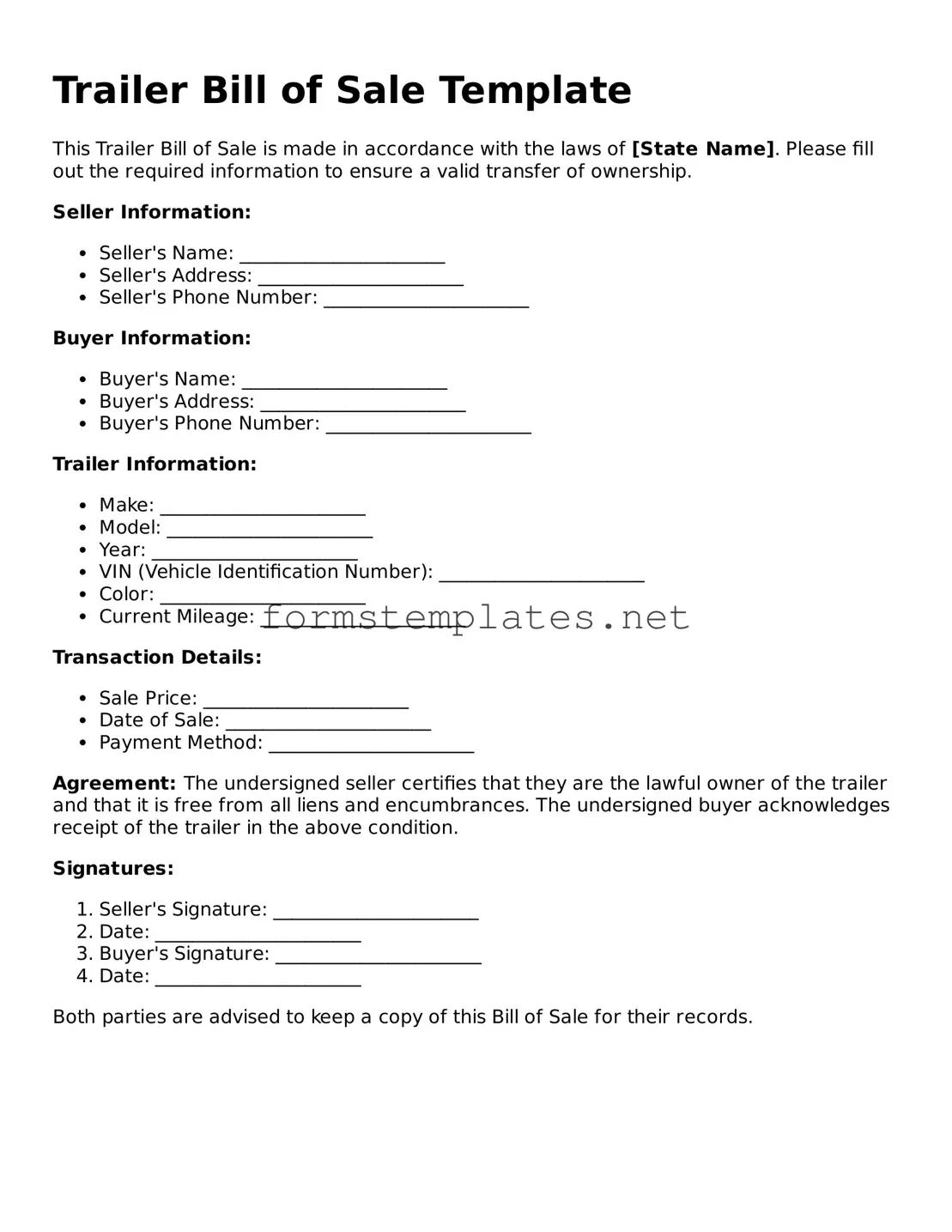Attorney-Verified Trailer Bill of Sale Form
The Trailer Bill of Sale form serves as a legal document that records the transfer of ownership of a trailer from one party to another. This form includes essential details such as the buyer's and seller's information, the trailer's specifications, and the sale price. Properly completing this document ensures a smooth transaction and protects the rights of both parties involved.
Open Editor Now

Attorney-Verified Trailer Bill of Sale Form
Open Editor Now

Open Editor Now
or
⇓ PDF Form
Your form still needs attention
Finalize Trailer Bill of Sale online — simple edits, saving, and download.